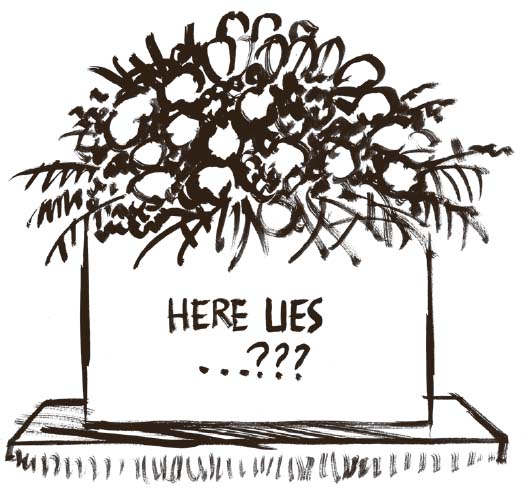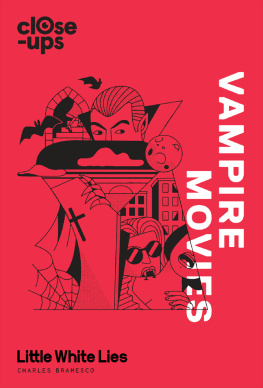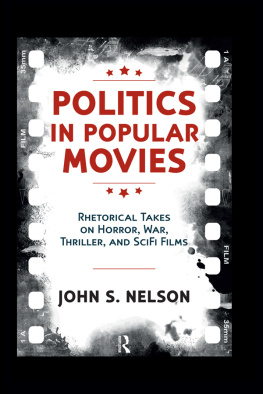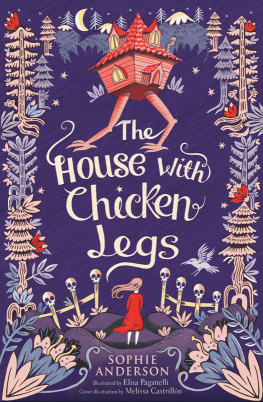Contents

William Collins
An imprint of HarperCollinsPublishers
1 London Bridge Street
London SE1 9GF
www.WilliamCollinsBooks.com
This eBook first published in Great Britain by William Collins in 2018
Copyright Sophie Monks Kaufman and Little White Lies 2018
Sophie Monks Kaufman asserts the moral right to be identified as the author of this work
Series editors: David Jenkins, Tom Killingbeck, Clive Wilson
Cover illustration by Christopher DeLorenzo
Interior illustrations by Laurne Boglio
Design and layout: Oliver Stafford, Laurne Boglio, Sophie Mo
A catalogue record for this book is available from the British Library
Extract from Fidelity by Ted Hughes taken from Birthday Letters (Faber and Faber, 1998); Extract by Arthur Goldman taken from Memoirs of a Geisha (Alfred A. Knopf, 1997); Quotation taken from the New Yorker, Wes Anderson on J. D. Salinger; https://www.newyorker.com/culture/richard-brody/wes-anderson-on-j-d-salinger
All rights reserved under International and Pan-American Copyright Conventions. By payment of the required fees, you have been granted the non-exclusive, non-transferable right to access and read the text of this e-book on-screen. No part of this text may be reproduced, transmitted, down-loaded, decompiled, reverse engineered, or stored in or introduced into any information storage and retrieval system, in any form or by any means, whether electronic or mechanical, now known or hereinafter invented, without the express written permission of HarperCollins
Source ISBN: 9780008256586
Ebook Edition September 2018 ISBN: 9780008256593
Version: 2018-10-01


Family as the hand that feeds and bleeds you
J ack (Jason Schwartzman) aims a can of mace at his brother Francis (Owen Wilson) in the 2007 film The Darjeeling Limited. In the process he distills a number of recurring truths in the work of the Houston, Texas-born writer/director Wes Anderson: families are hotbeds of hurt; family members lie, disappoint and reject one another, often at the most devastating of times; and parents often fail to look after or even stay alive for their children. The pain of coming from a dysfunctional home is writ large across every Anderson picture. And yet, for all the drama this pain causes, the subsequent hurt is rarely terminal. With reddened eyes and harbouring a lightly comic sense of stifled justice, the family unit limps on.
Children in adults clothing
Unlike in happily-ever-after childrens yarns, Wes Andersons characters dont get what they initially think they want. Or else they do but only briefly, before time dispatches them onwards. This sounds bleak, and would be if presented in a stark manner. However Wess films are the opposite of stark. He builds spectacles infused with childlike wonder, and in doing so sweetens the pill of certain death. If there is a message to be taken from all these images it is: dont be a jaded grown-up while theres still time on the clock. Wes almost sabotages himself by employing a childlike delivery of adult wisdom. Instead of having all the elements of cinema at the service of a single view, he has profound emotions dressed up in ornate dolls clothing in what is almost a tonal conflict.
The recurring fact of someone coming unglued
I guess when I think about it, one of the things I like to dramatise, and what is sometimes funny, is someone coming unglued, said Anderson in a 2012 interview. We watch as his characters come unglued from lifes big external mechanisms work, the law, the Scouting movement. They come unglued from personal attachments, family connections and romantic relationships. And finally, this glue chips away from abstract things sanity, health and existence itself. Showing people becoming unglued is a way to show who they really are. Blending in with society, i.e. not becoming unglued, dooms a person to anonymity. WH Audens 1940 poem The Unknown Citizen is a satirical tribute to a man whose only graces were his utter lack of identifying features. As Auden wrote:
Our researchers into Public Opinion are content
That he held the proper opinions for the time of year;
When there was peace, he was for peace:
when there was war, he went
After illustrating a lifetime of flying beneath the radar, Auden ends the poem with these lines:
Was he free? Was he happy? The question is absurd:
Had anything been wrong, we should certainly have heard.

Andersons unglued characters tend not to be unknown citizens. [His] dialogue is almost entirely comprised of things real people never say, but probably think. Its like hearing the gaps between the pauses in polite conversation, wrote Suzie MacKenzie. I am very sorry for your loss, says Gene Hackmans huckster patriarch in 2001s The Royal Tenenbaums to his two recently bereaved grandsons. Your mother was a terribly attractive woman.
However these people may suffer, it is rarely in repressed silence. Indeed idiosyncratic characters drive the narratives.
To backtrack, for a moment
Wes Anderson has, to date, written and directed nine feature films. He has made a handful of short features, some advertisements and has acted as producer on three films (his friend Noah Baumbachs The Squid and the Whale (2005), his idol Peter Bogadanovichs Shes Funny That Way (2014) and curiosity documentary project, Escapes (2017).
Still, Wes (which is how I shall henceforth be referring to him) is primarily known for his own film work.
A Wes Anderson Feature Presentation 9 (and some shorts)
The year was 1996 and the movie was called Bottle Rocket, which is where our story begins. It was adapted from a Sundance-screened short made with the actors Owen Wilson, Luke Wilson and Robert Musgrave (whatever happened to him?). Wes roped in cinematographer Robert Yeoman, who he admired for his work on Gus Van Sants Drugstore Cowboy, by writing him a charming letter (aside: Robert is not sure how Wes got his home address). It was the beginning of a long-term alliance. Good and helpful people were now on his side. LM Kit Carson (director of the seminal doc-fiction hybrid film, David Holzmans Diary, from 1967) joined as producer. The Indian character actor and vaudevillian Kumar Pallana was enlisted for a small role. Andrew Wilson, brother of Luke and Owen, signed up to play jock bully Future Man. The result was a story of friendship, petty crime and first love delivered in Wess signature deadpan tone, but not his signature look it is the least symmetrical and stylised of all his works. It offers a showcase for the Wilsons, screen debuts for all three. The film didnt do major business at the box office, which was chalked up to a marketing snafu, but that didnt stop Wes, who rolled out another movie within two years.
Next page












